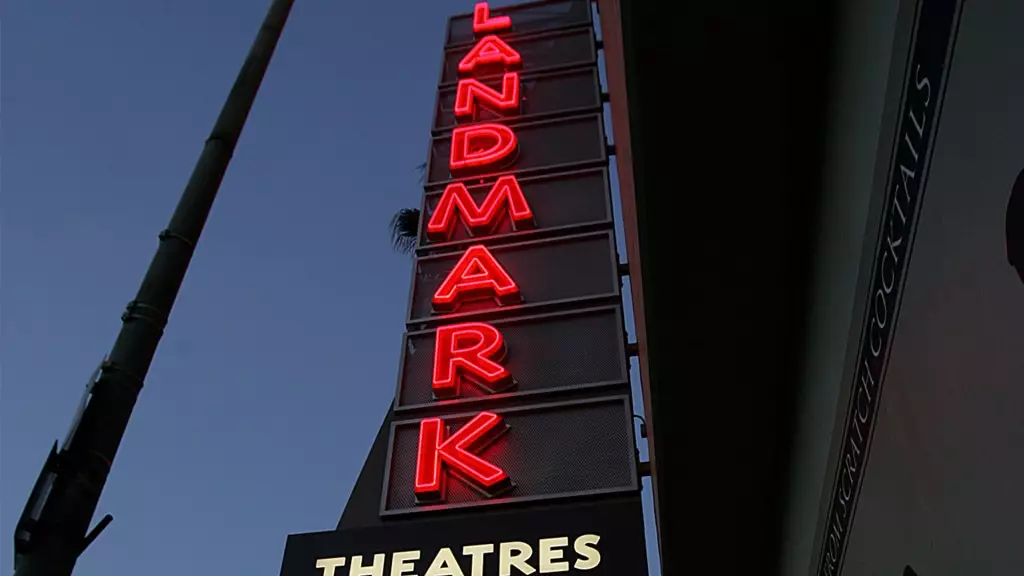The world of independent cinema is confronting a challenging period marked by financial struggles and shifting ownership dynamics. A recent foreclosure auction involving Charles Cohen paints a compelling picture of the current landscape. The auction revealed a concerning trend for arthouse theaters, particularly in the context of the Curzon chain in the United Kingdom and Landmark Theatres in the United States.
At a recent foreclosure auction, Creditor Fortress emerged as the sole bidder for a portion of properties owned by Charles Cohen, most notably offering $5 million for Curzon. This notable bid, however, raises questions about the overall viability of Cohen’s ventures in the cinema industry. While Fortress’s acquisition of Curzon might seem promising for that particular theater chain, the absence of bids for Landmark Theatres underscores a deeper issue—the perception of the brand’s stagnation since Cohen’s purchase in late 2018.
It’s crucial to note that the auction was characterized by a lack of interest in individual theaters, which implies a broader unease within the indie distribution community regarding the future of Landmark. Reports suggest that the chain has not made substantial investments in its theaters, opting instead for a more widespread release strategy, which some critics argue is detrimental to the unique value proposition that arthouse cinemas offer.
The COVID-19 pandemic wreaked havoc on cinema owners globally, and arthouse theaters were not exempt from its disastrous effects. Landmark LA, for example, closed its doors in the spring of 2022, following the loss of its lease—a decision that prompted disappointment among loyal patrons. According to industry insiders, the decline of such iconic venues seems to correlate directly with Cohen’s management approach, which has drawn criticism for a perceived lack of investment in enhancing the uniqueness and allure of the theaters.
As the indie distribution community reflects on the current state of Landmark, it appears there is unanimous sentiment that the changes instituted post-acquisition have not been favorable. In fact, insiders have characterized the operational decisions as a drift away from the original value of the arthouse experience, which pivots around screening niche and avant-garde films that typically don’t receive major studio backing. The situation at Landmark begs the question of whether the focus on large-scale releases is ultimately beneficial for the long-term sustainability of arthouse cinemas.
Fortress Investment Group’s financial maneuvers play a significant role in this evolving narrative. Previously, Fortress lent Cohen a staggering $534 million, supported by collateral that included Landmark and Curzon properties. Following Cohen’s default on this loan, Fortress sought to recover its investments through an auction, culminating in the recent sale. With Fortress’s aggressive bidding strategy—totaling almost $149 million across various properties—questions arise about the future direction of these theaters.
Fortress’s interest in acquiring Curzon specifically highlights a potential pivot toward revitalizing this theater chain to restore its standing within the arts scene. However, the implications for Landmark remain ambiguous, as Fortress’s own disclosures in a public deposition reveal sobering financial facts: Landmark reported a net loss exceeding $14 million, while Curzon faced a shorter deficit of just under $8.5 million. Such numbers indicate a stark reality that the financial health of these chains needs urgent revitalization.
With these developments, the future for arthouse theaters—specifically Landmark and Curzon—hangs in the balance. The pressing question remains: can these institutions navigate the shifts in management, operational strategy, and broader market trends to reclaim their positions as vital cultural hubs? The blend of Fortress’s acquisitions and Cohen’s stewardship propels both chains into an uncertain realm filled with challenges yet ripe with potential.
Ultimately, what the future holds for these theaters will depend on how effectively they can adapt to the shifting landscape of cinema, re-establish their unique identities, and uphold their legacies in an industry that, despite its trials, continues to be driven by passionate audiences and dedicated filmmakers.

